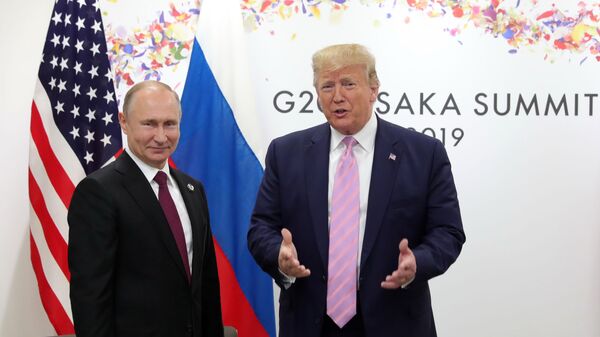"The two presidents, I presume, would like to get together and if we do have a good deal here, that could be the focus of a meeting," Billingslea said.
The Special Envoy noted citing earlier White House statements that no preparations for a Putin-Trump meeting are currently underway.
Meanwhile, Russian Deputy Foreign Minister Sergey Ryabkov said on Tuesday that his meeting with Marshall Billingslea in Vienna had been productive, but serious differences remained.
"The negotiations took place with a deep immersion in the matter, the Russian-US negotiations provided an opportunity for a business-like and substantive conversation, the parties managed to avoid mentoring and concentrate on a pragmatic exchange of views. Nevertheless, the priorities of the US and Russia at this stage are very different," Ryabkov said, as quoted by Russian Permanent Representative in Vienna to International Organizations Mikhail Ulyanov on Twitter.
Moscow is not ready to extend the New START (Strategic Arms Reduction Treaty) at any cost, Ryabkov said.
"Russia favours extending the New START, but is not ready to pay any price for it," he said.
Moscow urges the US to focus on bilateral negotiations on a future of the New START or a new agreement, as China, France and the UK are not yet ready to join the discussion, Ryabkov said.
"The United States insists that China joins the agreement on the reduction of strategic offensive arms, Russia in response believes that France and the UK should also do this. But in conditions when these countries are not ready for this, Moscow and Washington should concentrate on bilateral negotiations on this topic," he said.
During the talks, the US side showed that it did not close the possibility of extending the New START, but Washington was not ready to record this intention.
"Our conclusion from these discussions is that the US does not close the option of extending the treaty, but it is still not ready to record an agreement. They leave options for their further actions, try to form a certain set of issues on which they expect us to move toward their demands, and, by and large, they avoid answering direct and logical question — are they ready to extend the agreement without preconditions, as it has been proposed by President Vladimir Putin for quite some time," Ryabkov told journalists.
According to him, there is still no answer to this question.
"Unfortunately, the current consultations have not changed this situation," he added.


